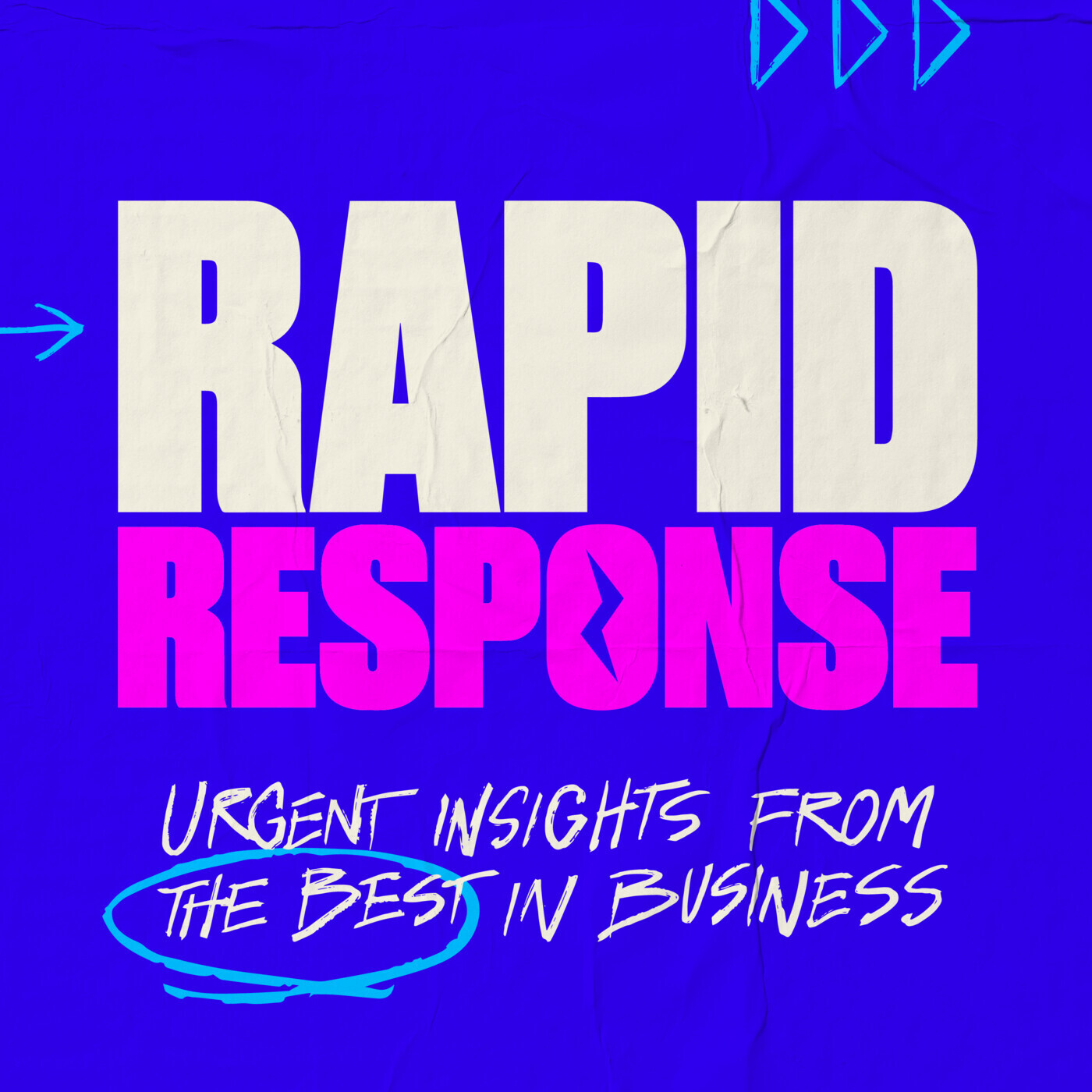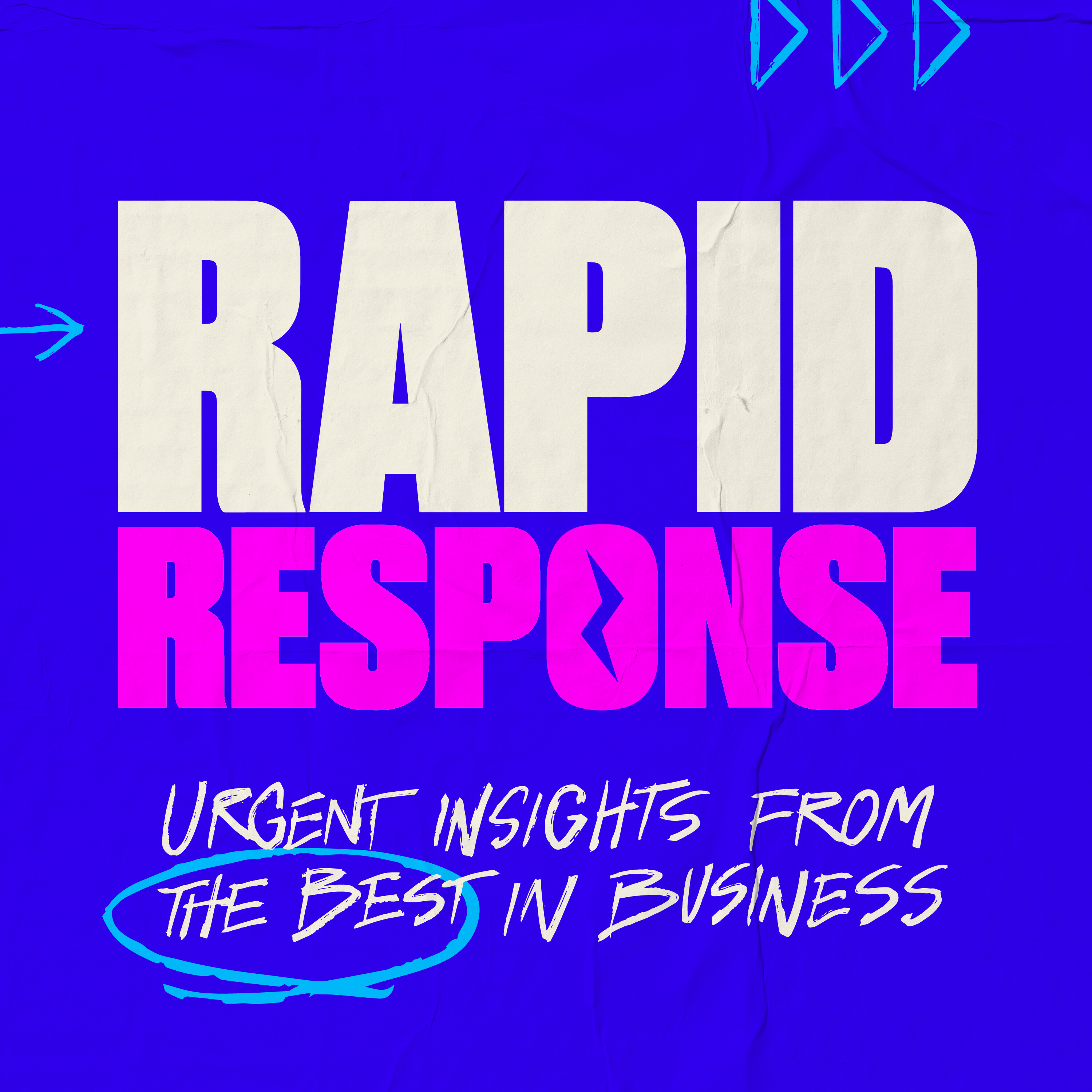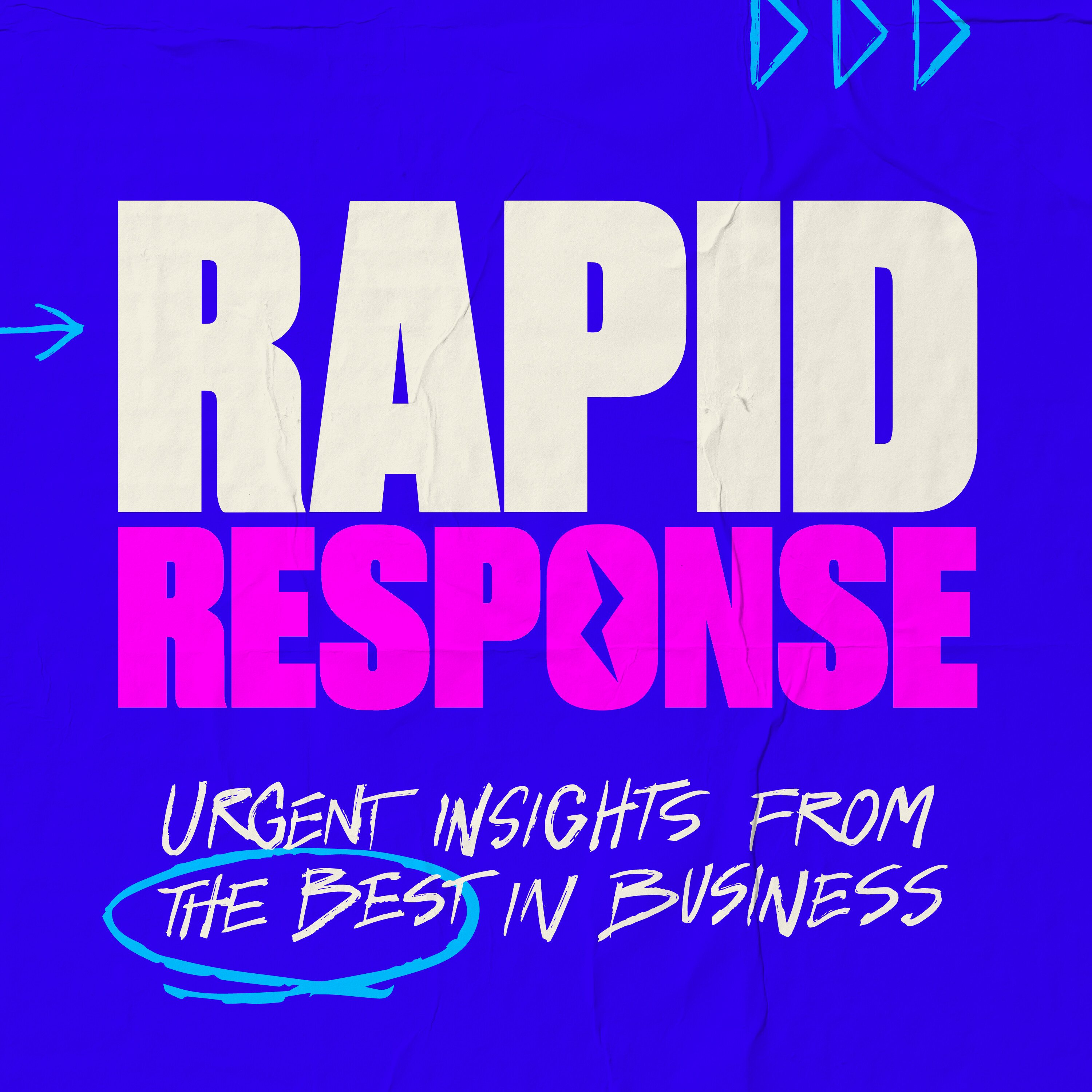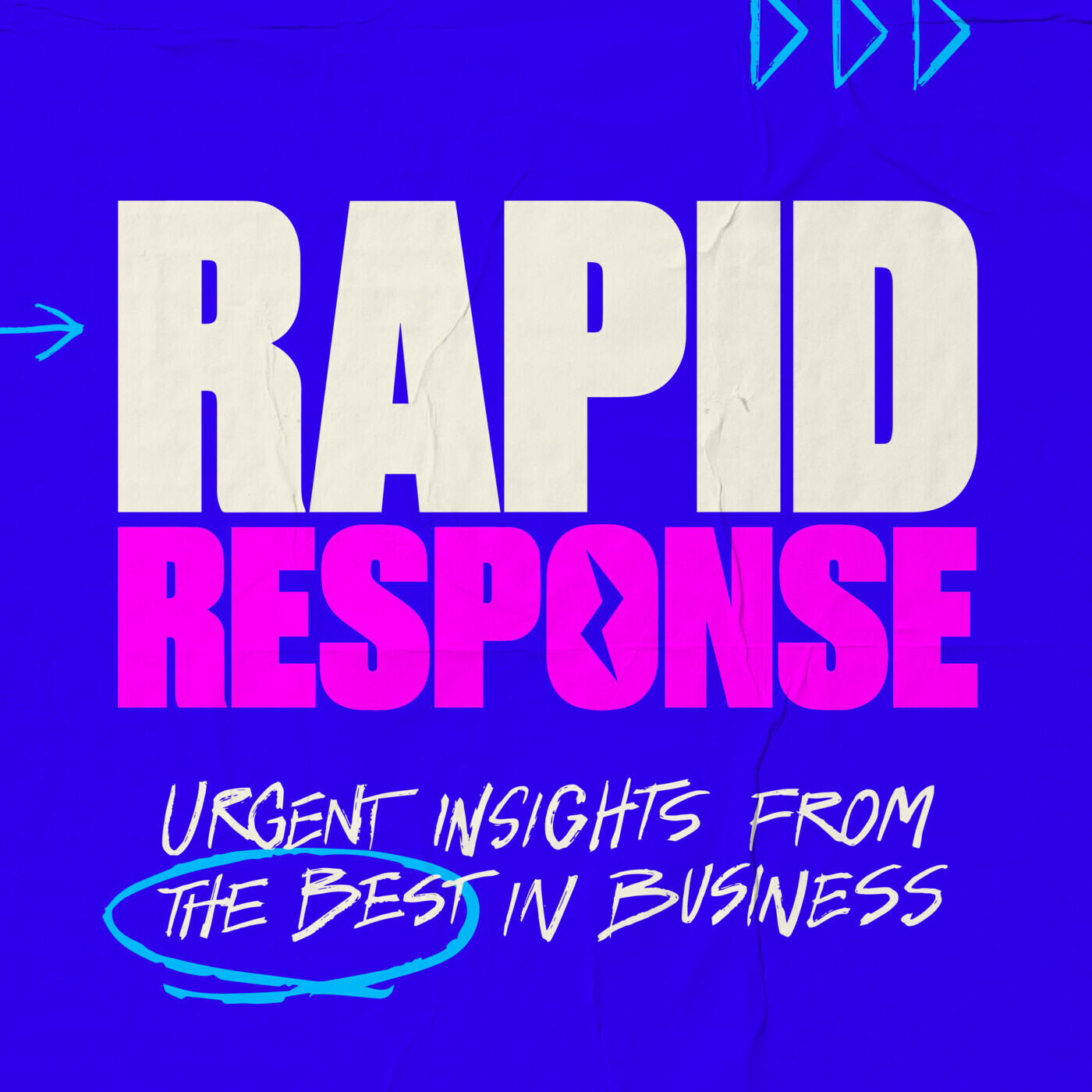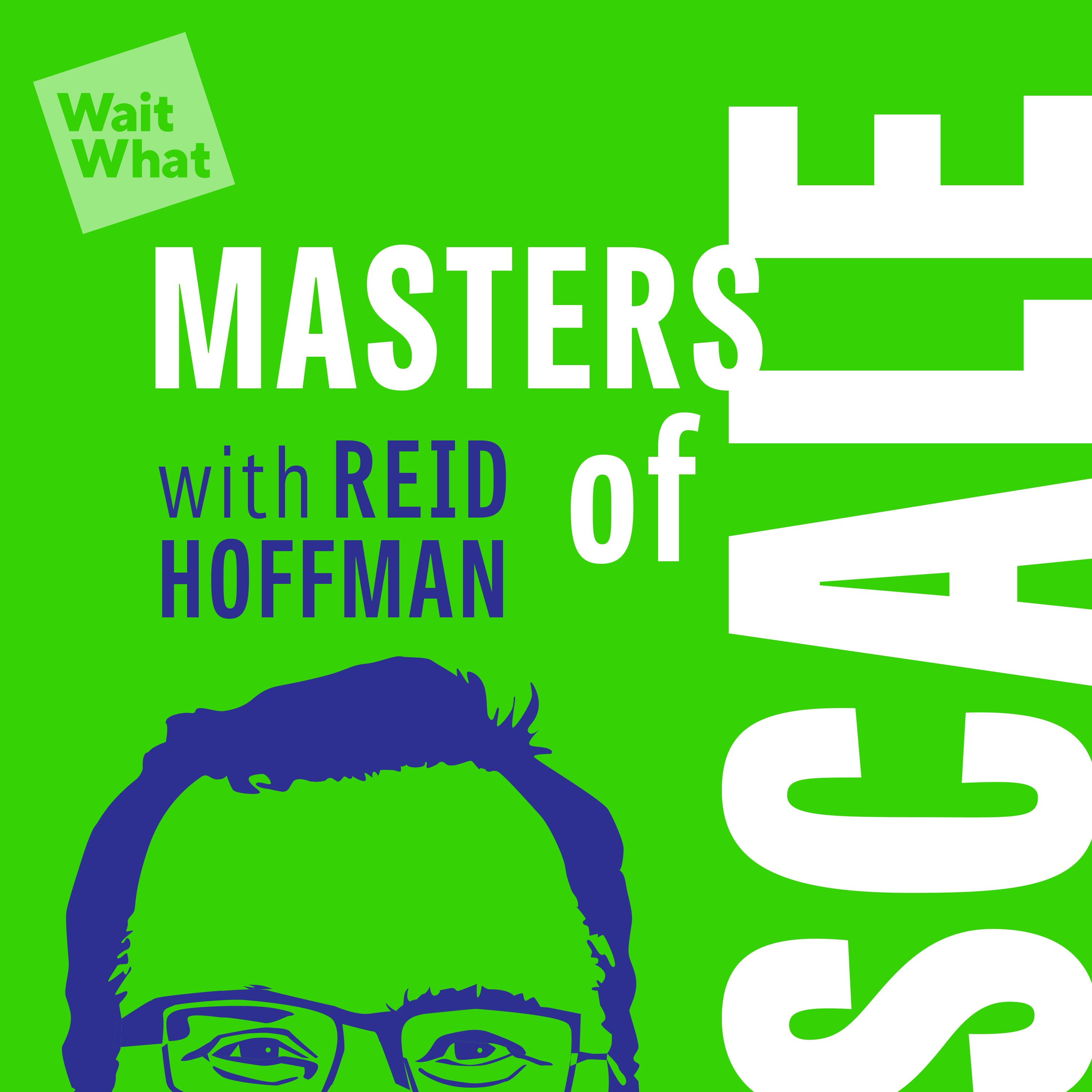
July 18, 2024 • 35min
Which start-ups change the future? Investor Mike Maples Jr. with Reid Hoffman
Masters of Scale

Key Takeaways
- Inflection points are key to breakthrough startups - they allow entrepreneurs to "change the subject" and force a choice rather than a comparison with incumbents
- Non-consensus thinking is more valuable than just being contrarian - it's about pursuing ideas at the edge out of genuine interest and obsession
- Pattern breaking is essential for startups to escape the gravitational pull of the present and create something truly new
- Great startups are often more like social movements than traditional businesses - they accumulate early believers who co-create the future
- AI represents a "sea change" towards an era of "mass cognition" that will create massive opportunities for startups
- Every professional activity will likely have an AI "copilot" within 3-5 years as cognitive amplifiers become ubiquitous
- Optimism and doing your personal best are key habits for success as an entrepreneur and investor
Introduction
In this episode of Masters of Scale, host Reid Hoffman interviews Mike Maples Jr., a successful Silicon Valley investor known for his "Midas touch" in identifying and funding breakthrough startups. Maples shares insights from his new book "Pattern Breakers" and discusses his approach to identifying inflection points, non-consensus thinking, and the potential of AI to reshape industries.
Topics Discussed
Inflection Points and Non-Consensus Thinking (03:38)
Maples explains that breakthrough startups embody inflections - turning points that allow entrepreneurs to "change the subject" and force a choice rather than a comparison with incumbents. He emphasizes the importance of non-consensus thinking:
- Non-consensus is better than contrarian - it's about independence of thought rather than just reacting to others
- Great founders pursue ideas they're obsessed with, exploring the unexplored to earn "secrets about the future"
- Pattern breaking is essential to escape the gravitational pull of the present and create something truly new
"Most of the really great startup ideas...they almost feel guilty that they had a non-consensus insight. They came about it honestly." - Mike Maples Jr.
Identifying Good Inflection Points (08:13)
Maples outlines his "stress test" for evaluating potential inflection points:
- What is the specific new thing? Pinpoint the exact technology, law change, etc.
- Why is it radically empowering and who benefits? Understand the impact and target audience
- What are the empowerment conditions? Consider potential roadblocks or enablers
He emphasizes that timing is critical and stress testing ideas improves the odds of getting it right.
Startups as Social Movements (17:17)
Maples argues that great startups often resemble social movements more than traditional businesses:
- They appeal to a minority who feel a grievance with the status quo
- Early believers accumulate and co-create the future with the founder
- They force a choice rather than a comparison with incumbents
He uses Airbnb as an example, showing how they positioned themselves as an alternative experience to traditional hotels rather than a direct comparison.
AI as a "Sea Change" (21:35)
Maples views AI as more than just an inflection point - he sees it as a "sea change" ushering in an era of "mass cognition":
- Previous sea changes: Mass computation (PCs), mass connectivity (internet)
- AI represents mass cognition - a fundamental shift in how we process information
- Huge opportunities for startups despite some advantages for incumbents
He predicts a 5-year window of massive opportunity for startups in AI, similar to the early days of the internet.
AI's Impact on Professional Activities (26:53)
Hoffman and Maples discuss the widespread impact of AI on professional work:
- Every professional activity will likely have an AI "copilot" within 3-5 years
- Potential for "unbundling intelligence" with specialized AI agents for different tasks
- AI agents may become gatekeepers for human attention and decision-making
"Human intelligence is a bundle of a lot of different types of intelligences in one person, but there's no reason that you can't unbundle those intelligences and have agentic behavior for those different types of things." - Mike Maples Jr.
Lessons from Startup Pivots (28:52)
Maples shares the example of Odeo pivoting to become Twitter:
- Odeo started as a podcasting company but faced competition from Apple
- They pivoted to Twitter based on an internal side project
- Demonstrates how breakthroughs can come unexpectedly within struggling companies
Book Recommendations (29:48)
Maples recommends several books:
- "The Top Five Regrets of the Dying" by Bronnie Ware - Insights from hospice patients on living authentically
- "The 7 Powers" by Hamilton Helmer - A book on competitive strategy
- "The Art of Thought" by Graham Wallace - Study of creative thinking in historical geniuses
Advice for Entrepreneurs (31:42)
Maples offers key advice for aspiring entrepreneurs:
- Pursue ideas you're intrinsically motivated by - don't just chase trends
- Focus on the frontiers of knowledge in areas that genuinely interest you
- Don't look for a recipe for success - breakthroughs can't be planned
Habits for Success (32:18)
Maples highlights two key habits that have contributed to his success:
- Optimism - Believing there's always a solution and a way forward
- Doing your personal best - Focusing on your unique strengths rather than comparing to others
"If you do your best, you may not always be the best, but you couldn't do any better." - Mike Maples Jr.
Dealing with Difficult Decisions (33:31)
Maples discusses his approach to making tough choices:
- Seeking advice from trusted mentors and colleagues
- Working with a coach (Matt Mochary) who holds him accountable
- Forcing himself to have difficult conversations when necessary
AI and the Future (35:07)
When asked how he'd like AI to change his future, Maples expresses a desire for:
- Extended lifespan to explore more ideas and experiences
- Opportunities to try different careers and ways of helping people
- More time to learn and engage with the world's knowledge
Conclusion
Mike Maples Jr.'s insights on identifying inflection points, embracing non-consensus thinking, and viewing startups as social movements offer valuable guidance for entrepreneurs and investors. His perspective on AI as a "sea change" towards mass cognition highlights the massive opportunities ahead, while emphasizing the continued importance of human creativity and optimism in navigating this new landscape. By focusing on genuine interests, breaking patterns, and doing one's personal best, Maples suggests that entrepreneurs can position themselves to create truly breakthrough innovations in the age of AI and beyond.

